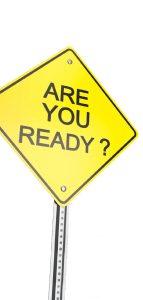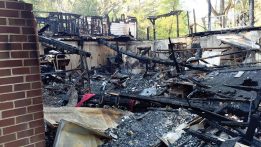 When disaster strikes, chaos usually ensues. Having a plan can help decrease the confusion and stress for everyone involved. Getting a plan is easy!
When disaster strikes, chaos usually ensues. Having a plan can help decrease the confusion and stress for everyone involved. Getting a plan is easy!
Go to: www.floridadisaster.org/getaplan/. You can make it fun by getting everyone involved. Pick up a 5-gallon bucket for each family member – don’t forget about your pets! Then head to a local discount store and gather up the items from the “Bucket List.” You can add your personal touch and let the kids include a special item to pass the time, such as a game or book. Follow these steps for creating a disaster plan for your family. All disasters begin and end locally. Be Prepared!
Shutting Down the House
 This section can be adapted for shutting down your home for disaster or vacation.
This section can be adapted for shutting down your home for disaster or vacation.
Notify family and neighbors that you are evacuating or will be gone. This list differs for each family.
Notify:
- Have mail held or picked up by a neighbor or friend.
- Have your newspaper stopped or picked up.
- Be sure to check your calendar and reschedule appointments or pending events.
Make sure your house is ready:
Turn off your water heater, sprinklers, ice maker, toilets, and the water at the main supply line.
Disconnect the propane tank from your grill, and store both the tank and the grill in a safe place.
Unplug your electrical appliances such as the garbage disposal, DVD/Blu-ray players, clothes washer and dryer, answering machine, televisions, telephones, radios, computers and printers, dish washer, refrigerator, can opener, coffee pot, microwave, toaster, clocks, fans, and lamps.
Take garbage out, water plants, close blinds/curtains, interior doors, and lock windows, exterior doors, exterior buildings, and garage doors.
IMPORTANT ITEMS To Prepare Ahead and Pack
Cash
Extra keys for car(s) and house(s)
Scan items such as credit cards, retirement papers, insurance papers, marriage/birth certificates, military discharge papers, wills, bonds, and photo IDs, address books and phone number contact lists to a jump drive.
Scan passports, check books, social security cards, deeds and titles, a list of family members’ physicians, recent photos of house contents, a list of styles and serial numbers of medical devices such as pacemakers, and a list of prescribed medications to a jump drive.
Seal important papers in plastic bags to help prevent water damage.
CONTACT LIST
Keep a list of important numbers and contact information in your disaster plan. Such as:
Emergency management, power, garbage, and water companies.
Contact information for your automobile, home owners’/renters’, life, and RV insurance. Account numbers and contact information for credit cards and banking information.
Contact information for family and friends.
LOCAL RADIO STATIONS
Identify radio stations with generators, and note their AM/FM location on the dial.
DISTRIBUTION SITES
Make note of where ice, water, and food will be distributed.
GARBAGE AFTERWARDS
Know the guidelines in your local area for disposing normal household garbage, biohazard material, yard debris, and construction debris.
WATER TREATMENT
 Boil water three to five minutes. Let it cool. Then, pour it between clean containers several times. An alternative treatment is to add eight drops of unscented bleach to one gallon of water. Let that stand for thirty minutes.
Boil water three to five minutes. Let it cool. Then, pour it between clean containers several times. An alternative treatment is to add eight drops of unscented bleach to one gallon of water. Let that stand for thirty minutes.
RESOURCES
www.floridadisaster.org/getaplan/
Remember – the most important step in a disaster plan is using it! ![]()
By Mary Register
Anytime Concrete





